The global pistachio market has been significantly impacted by the ban on Iranian pistachios. Iranian pistachios have long been recognized as among the finest in the world, holding a significant share of the international market. However, a series of sanctions and trade restrictions imposed on Iran have led to a ban on their pistachio exports. This article explores the reasons behind the ban, its implications for the Iranian economy, and the potential consequences for the global pistachio industry. Reasons behind the ban: 1. Iran’s nuclear program: One of the primary reasons behind the ban on Iranian pistachios is Iran’s controversial nuclear program. The United States and several other countries have imposed economic sanctions on Iran, including restrictions on trade, to curb the development of nuclear weapons. These sanctions have had a significant impact on various sectors of the Iranian economy, including agriculture. 2. Political tensions and international relations: The ban on Iranian pistachios is also influenced by political tensions and international relations between Iran and other countries. Ongoing conflicts, including Iran’s strained relations with Saudi Arabia and Israel, have led to further trade restrictions and embargoes on Iranian products, including pistachios. Implications for the Iranian economy: 1. Economic impact: The ban on Iranian pistachios has had a severe impact on the Iranian economy. Iran has historically been one of the largest producers and exporters of pistachios globally. With the ban in place, the country has suffered a significant decline in revenue from pistachio exports. Consequently, the livelihoods of thousands of farmers and workers in the pistachio industry have been adversely affected. 2. Employment and rural development: Pistachio cultivation plays a crucial role in the rural economy of Iran, particularly in regions like Kerman, Rafsanjan, and Sirjan. The ban has led to increased unemployment and reduced opportunities for rural development in these areas. Many farmers and workers in the pistachio industry have been forced to seek alternative sources of income or face financial difficulties. 3. Shift in focus to domestic consumption: With the ban on pistachio exports, Iran has been compelled to focus on domestic consumption to maintain some level of demand. While this has helped to sustain the industry to an extent, it has not fully compensated for the loss of export revenue. Additionally, Iranian consumers now face higher prices due to limited supply, impacting their purchasing power and consumption patterns. Consequences for the global pistachio industry: 1. Market opportunities for other producers: The ban on Iranian pistachios has created market opportunities for other major pistachio producers, such as the United States, Turkey, and Syria. These countries have been able to increase their exports and capture a larger share of the global market.
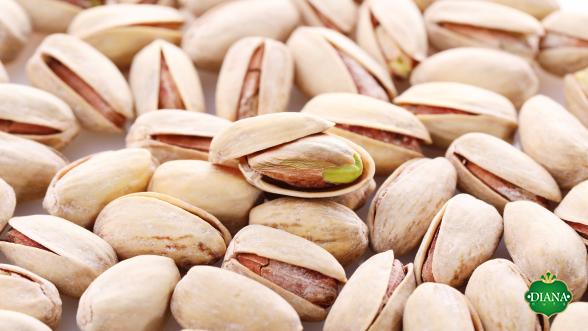
nut
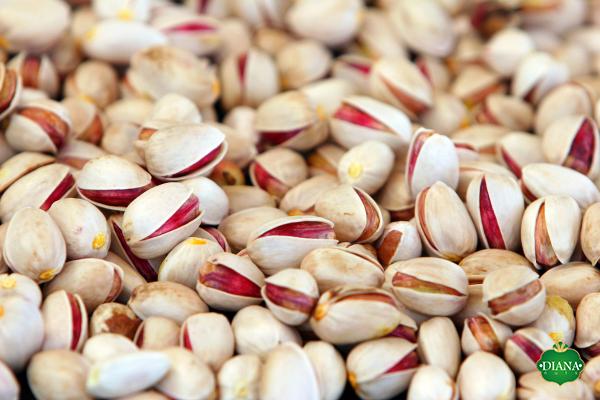 However, the increased supply from these countries has also put downward pressure on prices, affecting the profitability of their pistachio industries. 2. Quality perception and reputation: Iranian pistachios have long been renowned for their superior quality and taste. However, the ban has created doubts regarding the continuity of consistent supply from Iran. Competing producers are taking advantage of this uncertainty to position their products as reliable alternatives to Iranian pistachios. Consequently, the reputation of Iranian pistachios may have suffered, at least in the short term. 3. Impact on global pistachio prices: The ban on Iranian pistachios has had a significant impact on global pistachio prices. With supply disruptions from one of the major producers, prices have generally increased. Consumers, including manufacturers and retailers in various countries, have been faced with higher costs, impacting their bottom line and potentially influencing consumer trends and preferences. Conclusion: The ban on Iranian pistachios has had far-reaching implications for Iran’s economy, particularly its agriculture and rural areas. Additionally, the ban has reshaped the dynamics of the global pistachio market, creating opportunities for other producers but also impacting prices and consumer perceptions. The long-term consequences of the ban remain uncertain, as they are deeply intertwined with political developments and measures taken to address the issues at hand. Overall, the ban on Iranian pistachios serves as a reminder of the interconnectedness between trade, politics, and agricultural economies in the global marketplace. I. Shifting Market Dynamics in the Pistachio Industry The ban on Iranian pistachios has led to significant shifts in the dynamics of the global pistachio industry. With Iran being one of the largest producers and exporters of pistachios, the absence of their product on the international market has created opportunities for other major producers to expand their market share. Let’s explore how these changes are affecting the industry. 1. Increased Market Share for Other Producers: Countries such as the United States, Turkey, and Syria have been able to capitalize on the ban and increase their pistachio exports. These countries have ramped up production to meet the increased global demand previously met by Iran. This has allowed them to capture a larger market share and potentially establish long-term relationships with buyers who previously sourced their pistachios from Iran. 2. Price Adjustments: The ban on Iranian pistachios has caused price adjustments in the global market. Initially, prices increased due to the reduced supply, benefiting exporting countries that were able to fill the gap. However, as supply from alternative sources has increased, prices have stabilized or even decreased due to competition. This has led to a more price-sensitive market, affecting profitability for both alternative producers and buyers. 3. Emerging Market Players: The ban on Iranian pistachios has opened doors for emerging market players to enter the global pistachio market. Countries such as Italy, Spain, and Australia have seized this opportunity to expand their pistachio cultivation and export capabilities. As these countries establish their presence, the balance of power in the global pistachio industry is shifting, creating a more diverse supplier base. II. Impact on Pistachio Quality Perception and Reputation Iranian pistachios have long been renowned for their superior quality, flavor, and distinctive characteristics. However, the ban on their exports has raised concerns about the continuity of consistent supply. This uncertainty has led to potential changes in consumer perceptions and the reputation of Iranian pistachios.
However, the increased supply from these countries has also put downward pressure on prices, affecting the profitability of their pistachio industries. 2. Quality perception and reputation: Iranian pistachios have long been renowned for their superior quality and taste. However, the ban has created doubts regarding the continuity of consistent supply from Iran. Competing producers are taking advantage of this uncertainty to position their products as reliable alternatives to Iranian pistachios. Consequently, the reputation of Iranian pistachios may have suffered, at least in the short term. 3. Impact on global pistachio prices: The ban on Iranian pistachios has had a significant impact on global pistachio prices. With supply disruptions from one of the major producers, prices have generally increased. Consumers, including manufacturers and retailers in various countries, have been faced with higher costs, impacting their bottom line and potentially influencing consumer trends and preferences. Conclusion: The ban on Iranian pistachios has had far-reaching implications for Iran’s economy, particularly its agriculture and rural areas. Additionally, the ban has reshaped the dynamics of the global pistachio market, creating opportunities for other producers but also impacting prices and consumer perceptions. The long-term consequences of the ban remain uncertain, as they are deeply intertwined with political developments and measures taken to address the issues at hand. Overall, the ban on Iranian pistachios serves as a reminder of the interconnectedness between trade, politics, and agricultural economies in the global marketplace. I. Shifting Market Dynamics in the Pistachio Industry The ban on Iranian pistachios has led to significant shifts in the dynamics of the global pistachio industry. With Iran being one of the largest producers and exporters of pistachios, the absence of their product on the international market has created opportunities for other major producers to expand their market share. Let’s explore how these changes are affecting the industry. 1. Increased Market Share for Other Producers: Countries such as the United States, Turkey, and Syria have been able to capitalize on the ban and increase their pistachio exports. These countries have ramped up production to meet the increased global demand previously met by Iran. This has allowed them to capture a larger market share and potentially establish long-term relationships with buyers who previously sourced their pistachios from Iran. 2. Price Adjustments: The ban on Iranian pistachios has caused price adjustments in the global market. Initially, prices increased due to the reduced supply, benefiting exporting countries that were able to fill the gap. However, as supply from alternative sources has increased, prices have stabilized or even decreased due to competition. This has led to a more price-sensitive market, affecting profitability for both alternative producers and buyers. 3. Emerging Market Players: The ban on Iranian pistachios has opened doors for emerging market players to enter the global pistachio market. Countries such as Italy, Spain, and Australia have seized this opportunity to expand their pistachio cultivation and export capabilities. As these countries establish their presence, the balance of power in the global pistachio industry is shifting, creating a more diverse supplier base. II. Impact on Pistachio Quality Perception and Reputation Iranian pistachios have long been renowned for their superior quality, flavor, and distinctive characteristics. However, the ban on their exports has raised concerns about the continuity of consistent supply. This uncertainty has led to potential changes in consumer perceptions and the reputation of Iranian pistachios.
Specifications of nut
 1. Substitution with Alternative Varieties: In the absence of Iranian pistachios, consumers and manufacturers are exploring alternative varieties from other producing countries. While these alternatives may offer different flavors and characteristics, they provide a reliable and consistent supply. As consumers become accustomed to these substitutes, their preferences may shift away from Iranian pistachios, impacting the perception of their quality and taste in the long run. 2. Reputation Management Challenges: Building and maintaining a strong reputation in the pistachio industry requires consistency in quality and meeting buyer expectations. With the ban on Iranian pistachios, ensuring a stable and dependable supply chain has become a concern for buyers. This has given competing producers an opportunity to position their products as reliable alternatives, potentially eroding the reputation of Iranian pistachios as a premium choice. 3. Rebuilding Trust and Reestablishing Markets: During sanctions, Iranian pistachio exporters face challenges in rebuilding trust with potential buyers and reestablishing their presence in international markets. It will require concerted efforts to demonstrate the quality and reliability of Iranian pistachios, along with competitive pricing. Additionally, rebuilding trade relationships and mitigating political tensions will play a pivotal role in restoring Iran as a trusted and desirable pistachio supplier. III. Effects on Consumer Behavior and Trends The ban on Iranian pistachios has had noticeable effects on consumer behavior and purchasing trends in the global marketplace. With changes in supply, pricing, and availability, consumers and businesses are adjusting their preferences and strategies accordingly. 1. Increased Price Sensitivity: The ban has resulted in an overall increase in pistachio prices. Consumers, manufacturers, and retailers are becoming more price-sensitive and evaluating the value proposition offered by different pistachio varieties. As prices rise, some consumers may opt for alternative snacks or seek lower-priced pistachio options, impacting the demand for premium pistachios. 2. Shifts in Retail and Foodservice Offerings: Retailers and foodservice providers are adapting to the ban on Iranian pistachios by diversifying their offerings and exploring pistachio alternatives. This includes sourcing from different suppliers and even incorporating other nut varieties to meet consumer demand. By offering alternative options, businesses can maintain customer satisfaction and avoid disruptions caused by limited supply. 3. Innovation and Product Development: The ban has also spurred innovation and product development within the pistachio industry. Producers, manufacturers, and retailers are exploring new ways to add value to their pistachio products and cater to changing consumer preferences.
1. Substitution with Alternative Varieties: In the absence of Iranian pistachios, consumers and manufacturers are exploring alternative varieties from other producing countries. While these alternatives may offer different flavors and characteristics, they provide a reliable and consistent supply. As consumers become accustomed to these substitutes, their preferences may shift away from Iranian pistachios, impacting the perception of their quality and taste in the long run. 2. Reputation Management Challenges: Building and maintaining a strong reputation in the pistachio industry requires consistency in quality and meeting buyer expectations. With the ban on Iranian pistachios, ensuring a stable and dependable supply chain has become a concern for buyers. This has given competing producers an opportunity to position their products as reliable alternatives, potentially eroding the reputation of Iranian pistachios as a premium choice. 3. Rebuilding Trust and Reestablishing Markets: During sanctions, Iranian pistachio exporters face challenges in rebuilding trust with potential buyers and reestablishing their presence in international markets. It will require concerted efforts to demonstrate the quality and reliability of Iranian pistachios, along with competitive pricing. Additionally, rebuilding trade relationships and mitigating political tensions will play a pivotal role in restoring Iran as a trusted and desirable pistachio supplier. III. Effects on Consumer Behavior and Trends The ban on Iranian pistachios has had noticeable effects on consumer behavior and purchasing trends in the global marketplace. With changes in supply, pricing, and availability, consumers and businesses are adjusting their preferences and strategies accordingly. 1. Increased Price Sensitivity: The ban has resulted in an overall increase in pistachio prices. Consumers, manufacturers, and retailers are becoming more price-sensitive and evaluating the value proposition offered by different pistachio varieties. As prices rise, some consumers may opt for alternative snacks or seek lower-priced pistachio options, impacting the demand for premium pistachios. 2. Shifts in Retail and Foodservice Offerings: Retailers and foodservice providers are adapting to the ban on Iranian pistachios by diversifying their offerings and exploring pistachio alternatives. This includes sourcing from different suppliers and even incorporating other nut varieties to meet consumer demand. By offering alternative options, businesses can maintain customer satisfaction and avoid disruptions caused by limited supply. 3. Innovation and Product Development: The ban has also spurred innovation and product development within the pistachio industry. Producers, manufacturers, and retailers are exploring new ways to add value to their pistachio products and cater to changing consumer preferences.
buy nut
 This includes the introduction of flavored pistachios, nut mixes, and even incorporating pistachios into other food products like spreads and desserts. IV. Geopolitical Considerations and Future Outlook The ban on Iranian pistachios is deeply intertwined with geopolitical considerations, ongoing conflicts, and international relations. Its future outlook depends on the resolution of these issues, along with potential changes in sanctions and trade policies. 1. Political Developments and Sanctions: The ban on Iranian pistachios is closely linked to political tensions and sanctions imposed on Iran. The resolution of these political and diplomatic challenges will significantly impact the future of pistachio exports from Iran. Depending on diplomatic progress, sanctions may be lifted or eased, allowing Iranian pistachio producers to regain their market share. 2. Diversification of Trade Relations: Iranian pistachio exporters are exploring opportunities to diversify their trade relations and identify new markets. While traditional markets like Europe and Asia remain important, the focus has shifted towards potential buyers in emerging economies and regions outside of the traditional export destinations. By expanding their market reach, Iranian pistachio exporters can mitigate risks associated with bans and sanctions. 3. Market Recovery and Rebuilding: To recover from the ban on pistachio exports, Iran will need to invest in post-harvest processing facilities, packaging, marketing, and establishing reliable supply chains with buyers. Furthermore, efforts to rebuild trust and consolidate its reputation as a high-quality pistachio producer will be crucial. By addressing these factors, Iran can regain its position as a significant player in the global pistachio industry. In conclusion, the ban on Iranian pistachios has impacted the pistachio industry on multiple levels. It has shifted market dynamics, affected quality perceptions and reputations, influenced consumer behavior and purchasing trends, and raised geopolitical considerations. The future outlook for Iranian pistachios remains uncertain, with factors such as political developments, diversification of trade relations, and market recovery playing pivotal roles. As the industry continues to adapt to these changes, stakeholders must navigate the evolving landscape and seize opportunities presented by the ban to ensure sustained growth and profitability.
This includes the introduction of flavored pistachios, nut mixes, and even incorporating pistachios into other food products like spreads and desserts. IV. Geopolitical Considerations and Future Outlook The ban on Iranian pistachios is deeply intertwined with geopolitical considerations, ongoing conflicts, and international relations. Its future outlook depends on the resolution of these issues, along with potential changes in sanctions and trade policies. 1. Political Developments and Sanctions: The ban on Iranian pistachios is closely linked to political tensions and sanctions imposed on Iran. The resolution of these political and diplomatic challenges will significantly impact the future of pistachio exports from Iran. Depending on diplomatic progress, sanctions may be lifted or eased, allowing Iranian pistachio producers to regain their market share. 2. Diversification of Trade Relations: Iranian pistachio exporters are exploring opportunities to diversify their trade relations and identify new markets. While traditional markets like Europe and Asia remain important, the focus has shifted towards potential buyers in emerging economies and regions outside of the traditional export destinations. By expanding their market reach, Iranian pistachio exporters can mitigate risks associated with bans and sanctions. 3. Market Recovery and Rebuilding: To recover from the ban on pistachio exports, Iran will need to invest in post-harvest processing facilities, packaging, marketing, and establishing reliable supply chains with buyers. Furthermore, efforts to rebuild trust and consolidate its reputation as a high-quality pistachio producer will be crucial. By addressing these factors, Iran can regain its position as a significant player in the global pistachio industry. In conclusion, the ban on Iranian pistachios has impacted the pistachio industry on multiple levels. It has shifted market dynamics, affected quality perceptions and reputations, influenced consumer behavior and purchasing trends, and raised geopolitical considerations. The future outlook for Iranian pistachios remains uncertain, with factors such as political developments, diversification of trade relations, and market recovery playing pivotal roles. As the industry continues to adapt to these changes, stakeholders must navigate the evolving landscape and seize opportunities presented by the ban to ensure sustained growth and profitability.

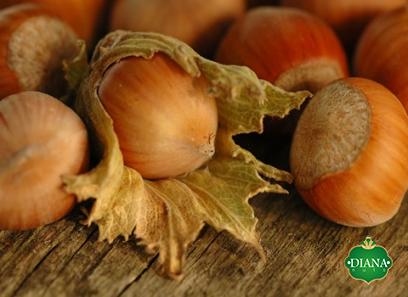
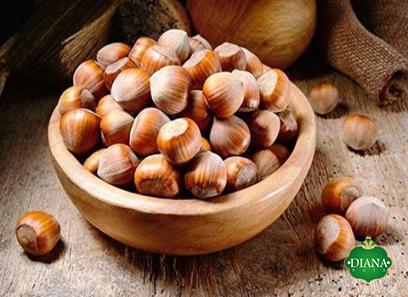
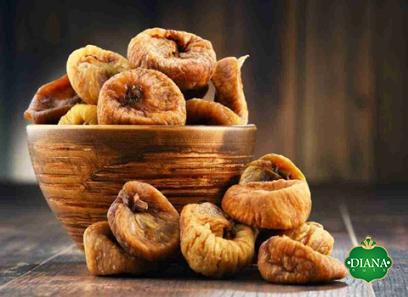
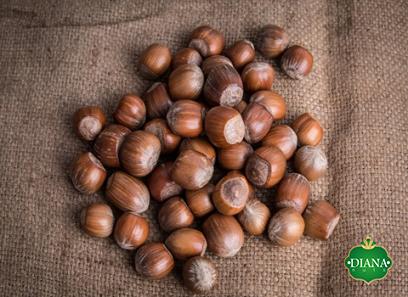

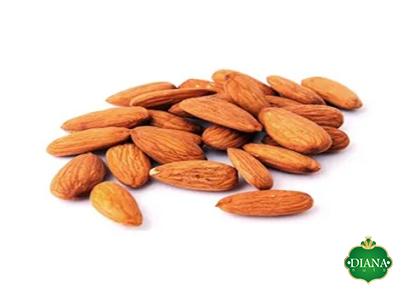

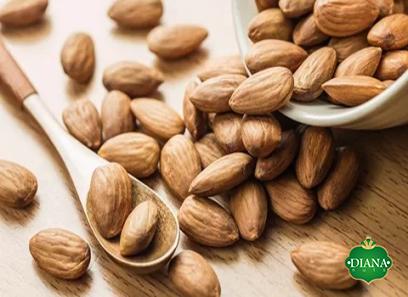

Your comment submitted.